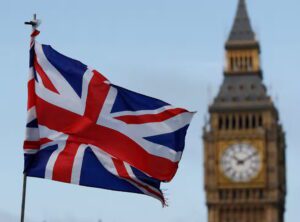
The agro-industrial group Kernel, due to the blockade of Ukrainian seaports by Russian warships, reduced the rate of export of agricultural products by 90% compared to the pre-war period, from 7.5 million tonnes per year to approximately 750,000 tonnes per year, the group said, citing its CEO Yevhen Osypov.
“Today, Kernel’s export performance has reached only 10% of pre-war results, despite the fact that we export more than 7.5 million tonnes of the products annually. We, like colleagues from other companies, are constantly working on alternative channels for the sale and delivery of products,” his words are quoted in a message from Kernel on the group’s Facebook page on Monday.
According to Osypov’s forecasts, the war unleashed by the Russian Federation could lead to a 40% reduction in sunflower oil exports. Taking into account its exports in the 2020/2021 marketing year (MY, September-August) at the level of 5.13 million tonnes, in the current MY 2021/2022, supplies to foreign markets may be reduced to 3.1 million tonsne.
“The war can become a humanitarian catastrophe for the whole world, but we are doing everything possible to ensure food security,” Kernel’s CEO stated.
As reported, before the Russian military invasion, Ukraine monthly exported up to 5 million tonnes of agricultural products through the ports of Odesa and Mykolaiv, however, due to the blockade of these ports by the aggressor country, Russia, Ukraine can transport no more than 500,000 tonnes of grain monthly, which leads to a monthly shortage of $1.5 billion in export earnings.

Denmark has become the first donor to the Energy Community’s Fund to rebuild war-torn energy infrastructure in Ukraine, Energy Minister Herman Haluschenko has said.
“Sincerely thanks to the first donor, Denmark, for responding to Ukraine’s call for urgent support to the energy sector in these difficult times of war,” Haluschenko was quoted as saying by the press service of the Ministry of Energy in a release on the website on Monday.
The amount of funds sent by Denmark was not specified in the message.
At the same time, the minister called on other countries and international partners to become donors to the Fund, noting that Ukrainian power engineers every day, despite enemy shelling, again and again resume electricity and gas supply.
Director of the Energy Community Secretariat Artur Lorkowski, for his part, assured that the corresponding funds would be sent to Ukraine as soon as possible.
“The Secretariat, together with the Ministry of Energy of Ukraine, will work quickly so that all contributions paid are directed to meet the most important needs of the Ukrainian energy sector,” Lorkowski said, cited by the press service of the Ministry of Energy.
As reported, in early April 2022, the Energy Community created a Fund to rebuild war-torn energy infrastructure in Ukraine, the donors of which should be mainly EU member states, as well as international companies and corporations.

About 40% of public catering establishments have already restored work in Kyiv and Kyiv region, while most of the operating cafes are in the Transcarpathian region – 86% of the pre-war number, follows from a study by Poster.
“In Kyiv, 40% of small and medium-sized establishments operate in comparison with the figure on February 23, in the Kyiv region – 41%. The number of open establishments began to grow rapidly after the north of Ukraine was completely liberated from the invaders in early April. For comparison, in At the end of March, only 18% of establishments worked in Kyiv, and 16% in the Kyiv region,” the company said.
According to the study, the most operating establishments are in Zakarpattia (86%), Chernivtsi (81%) and Lviv regions (79%).
The largest increase in open establishments in April compared to March was shown by Chernihiv (from 1% to 20%) and Sumy (from 16% to 49%) regions. In addition, the number of open cafes in the Zhytomyr region increased by 23% (up to 63%), by 21% – in the Volyn region (up to 77%), by 20% – in the Kirovohrad region (up to 78%).
At the same time, the least operating establishments are in the east of Ukraine: in the Kharkiv region – 9% of the pre-war number, in the Donetsk region – 5%, in the Luhansk region – 0%.
As reported, the Poster cafe and restaurant automation service permanently disconnected 10,000 customers in Russia and Belarus from its services.

All tariffs on goods coming to Britain from Ukraine under an existing free trade deal will be axed to help the Ukrainian economy, the British government announced on Monday.
London said tariffs would be reduced to zero and all quotas removed following a direct request from Ukraine’s President Volodymyr Zelenskiy, saying the move would provide a boost for Ukrainian businesses involved in key exports such as barley, honey, tinned tomatoes and poultry.
“We stand unwaveringly with Ukraine in this ongoing fight and will work to ensure Ukraine survives and thrives as a free and sovereign nation,” said British International Trade Secretary Anne-Marie Trevelyan.
Britain said currently the average tariff on Ukrainian imports was about 22%. It said the planned change had been offered on a non-reciprocal basis, but Kyiv was likely to match the British action

Mobile operator lifecell records an increase in demand for eSIM during the war in Ukraine: since February 24, it has increased five times on average, and on some days subscribers ordered 20 times more digital SIM cards than before the outbreak of hostilities , the press service of the company said on Monday.
“From March 4 to March 7, the operator observed a peak in demand for eSIM – 25 times more subscribers joined the lifecell network using digital SIM cards than in the same period before the war. And the traffic from the Kherson region in the lifecell online store during this period exceeded the usual level of 44 times,” the report says.
This, the company notes, is due to the fact that lifecell remained the only operator that provided communication services in Kherson and the region during this period. Consistently high rates of digital SIM usage in March remained in the Kherson region and Kyiv.
In addition, the number of eSIM users during the war increased in Lviv and the Lviv region by almost six times compared to pre-war times.
Outside of Ukraine, the demand for eSIM has increased sevenfold. Most people bought a digital SIM card in Poland and Germany.